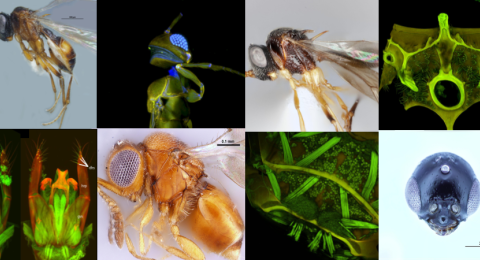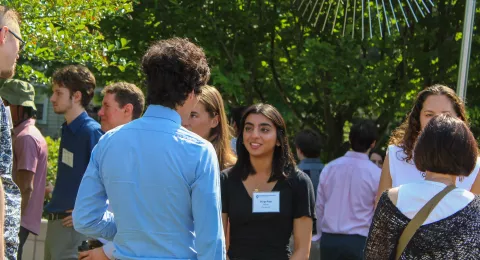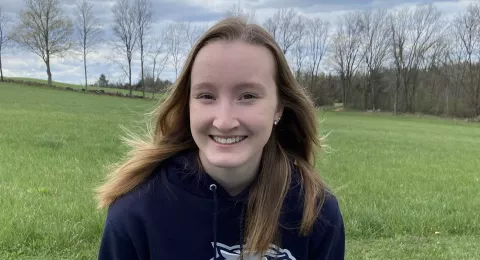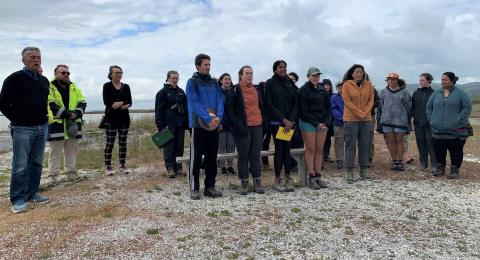The UNH Collection of Insects and Other Arthropods (UNHC) is committed to the increase of knowledge on insects and to disseminating this knowledge to the community of the University of New Hampshire and the general public with the emphasis on communities of publicly supported primary and secondary education. This mission requires a strong foundation, built on basic research in insect biodiversity and insect systematics. Such research is tied to collections, as objects of research and as representations of the natural history of the Earth. With almost 700,000 specimens and growing, the UNHC is the largest arthropod depository and research collection in northern New England.
History of the Collection
Our collection began in the late 1800s through the work of entomologists in Hanover, NH with the New Hampshire College of Agriculture and Mechanical Arts, before it moved to our present location in Durham in 1893. It is estimated to contain about 700,000 insect specimens, largely due to the efforts of Professor Emeritus Dr Donald Chandler. Today, it is the largest state university insect collection in New England. These specimens are an indispensable resource for a better understanding of the natural history of New Hampshire, and of our world.
Regional and International Holdings
The collection has matured from being an excellent state collection (known only to those in the New England region) to being recognized nationally and internationally as one of the major faunal resources of the Northeastern region, as evidenced by the number of international loans. The emphasis on intensive collections from state unique natural and old-growth areas, and more recently stream studies, has produced the depth and coverage of regional biodiversity that is not found or even approached in any other collection in the Northeast.
Notable collections
The UNH Collection of insects and other Arthropods is particularly outstanding in insect groups intensively studied by curators and others associated with the Museum, who through their field trips or through exchanges assembled specialized collections according to their individual interests including horseflies (Tabanidae - John Burger), ant-like and ant loving beetles (Anthicidae and Pselaphinae - Don Chandler), leafhoppers (Don Chandler), bird lice (James Keirans) and oribatid mites (Oribatida - Marcel Reeves). Link

Confocal Laser scanning micrographs of Mallophaga (chewing lice) species.






